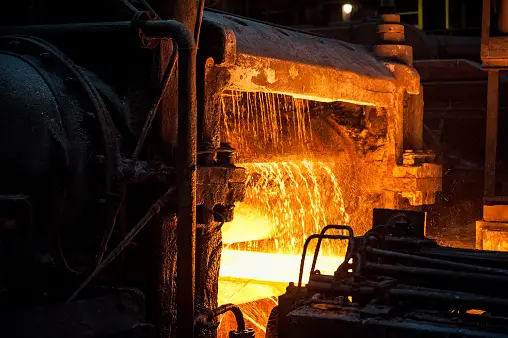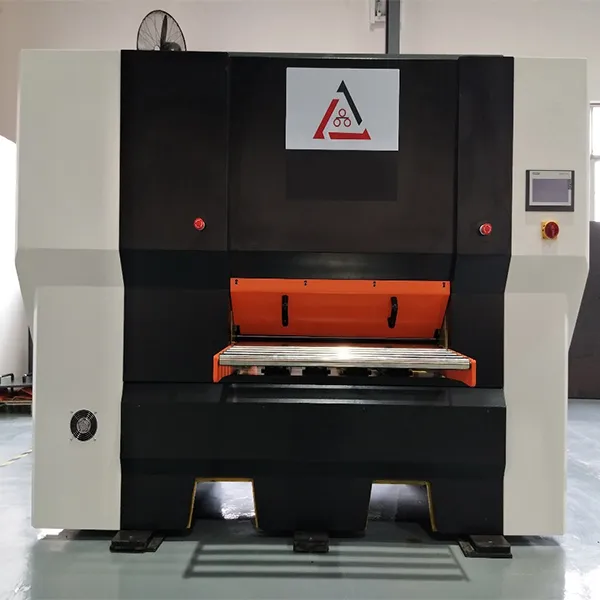
Understanding the Role of a Straightening Machine in Metal Processing
In the world of metal fabrication and industrial automation, precision is the cornerstone of quality. From the automotive to aerospace sectors, the integrity of every component begins with the condition of the raw material. Metal coils and sheets, as supplied, often harbor hidden internal stresses from prior processes like rolling, slitting, or heat treatment. These stresses manifest as curls, waves, bows, and twists, making the material unsuitable for high-tolerance production. This is where the straightening machine, an engineering marvel and a critical piece of industrial automation equipment, comes into play. At XINLIJIN, we are at the forefront of designing and manufacturing these vital machines, including roller levelers, precision levelers, and decoiler leveler feeder lines, which serve as the guardians of flatness and dimensional accuracy in modern manufacturing.
Why is Metal Straightening Non-Negotiable?
Attempting to fabricate or stamp parts from distorted material is a recipe for failure. The consequences ripple through the entire production line:
-
Production Stoppages: Uneven material jams automated feeders, causes misfires in stamping presses, and halts robotic welding cells.
-
Poor Product Quality: Wavy metal leads to misaligned parts, inconsistent welds, and flawed assemblies that fail quality control.
-
Tooling Damage: Forcing stressed material through dies and presses accelerates wear and can cause catastrophic damage to expensive tooling.
-
Material Waste: A high percentage of scrap parts is generated simply because the starting material was not flat.
A straightening machine systematically eliminates these issues by preparing material for subsequent operations, ensuring a smooth, efficient, and cost-effective manufacturing process.
The Core Science: How a Straightening Machine Works
The fundamental principle behind metal straightening is the controlled application of stress to overcome the material's yield point and permanently alter its structure. Think of bending a paperclip; a small bend springs back (elastic deformation), but a sharper bend holds its new shape (plastic deformation). A straightening machine replicates this effect with precision-engineered rollers.
A standard roller leveler from XINLIJIN features two sets of alternating, offset work rolls. As the uneven metal sheet passes through, the upper rolls are adjusted to penetrate deeper into the peaks of the material's waves. Each subsequent pair of rolls applies a reverse bend. This alternating bending action—stretching the peaks more than the valleys—subjects the entire cross-section of the material to plastic deformation. Through hundreds of these micro-bends, the material's internal grain structure is realigned, its "memory" of a stressed state is erased, and it exits the machine as a perfectly flat, stable, and stress-relieved product.
Key Types of Straightening Machines in Metal Processing
The specific straightening solution depends on the material and application. XINLIJIN offers a range of machines tailored to different needs:
-
Roller Levelers / Plate Leveling Machines: These are the workhorses for flattening metal sheets and plates. They use multiple small-diameter rolls to effectively neutralize center buckle, edge wave, and coil set. The number and diameter of the rolls are critical for achieving the desired flatness, especially on thin-gauge or high-strength materials.
-
Precision CNC Leveling Machines: For the most demanding applications, CNC levelers offer unparalleled control. Operators can digitally and independently adjust each upper support roll, allowing them to target specific imperfections with surgical precision. This is essential for advanced industries where micron-level flatness is required.
-
Decoiler Leveler Feeder Lines: This is an integrated automation system. It combines a decoiler to unwind the metal coil, a roller leveler to flatten it, and a feeder to accurately present the now-flat material into a press, laser cutter, or stamping machine. This seamless integration maximizes production line uptime and efficiency.
The XINLIJIN Advantage: Engineering for Excellence
Choosing the right straightening machine partner is crucial. XINLIJIN machines are built with key differentiating features that guarantee superior performance and longevity:
-
Robust Construction: A heavy-duty, rigid frame prevents deflection under load, ensuring consistent flatness across the entire width of the material.
-
Precision-Ground Rolls: Our work rolls are manufactured to exacting tolerances, providing a flawless surface finish on the processed metal.
-
Advanced Control Systems: From simple manual adjustments to fully automated CNC controls, we provide the interface needed for repeatable, high-quality results.
-
Application-Specific Engineering: We don't just sell machines; we provide solutions. Our experts can recommend or custom-build a straightening system optimized for your specific material type, thickness, and production goals.
Conclusion: The Foundation of Flawless Fabrication
A straightening machine is not merely an auxiliary piece of equipment; it is a foundational technology that enables modern, high-speed, precision manufacturing. By investing in a high-quality straightening solution from a trusted manufacturer like XINLIJIN, you are not just buying a machine—you are investing in the reliability of your entire production line, the quality of your final products, and the reduction of operational waste. It is the first and most critical step in transforming raw, stressed metal into a perfect blank for creation.


















































